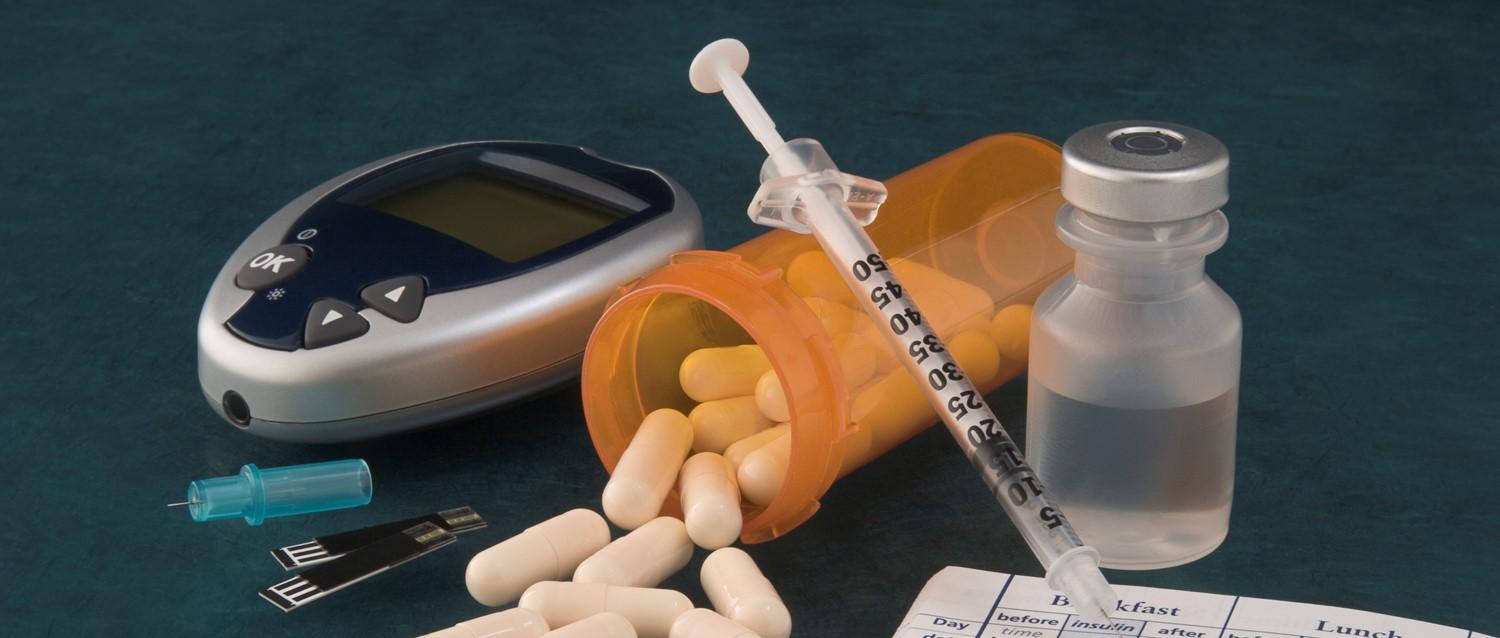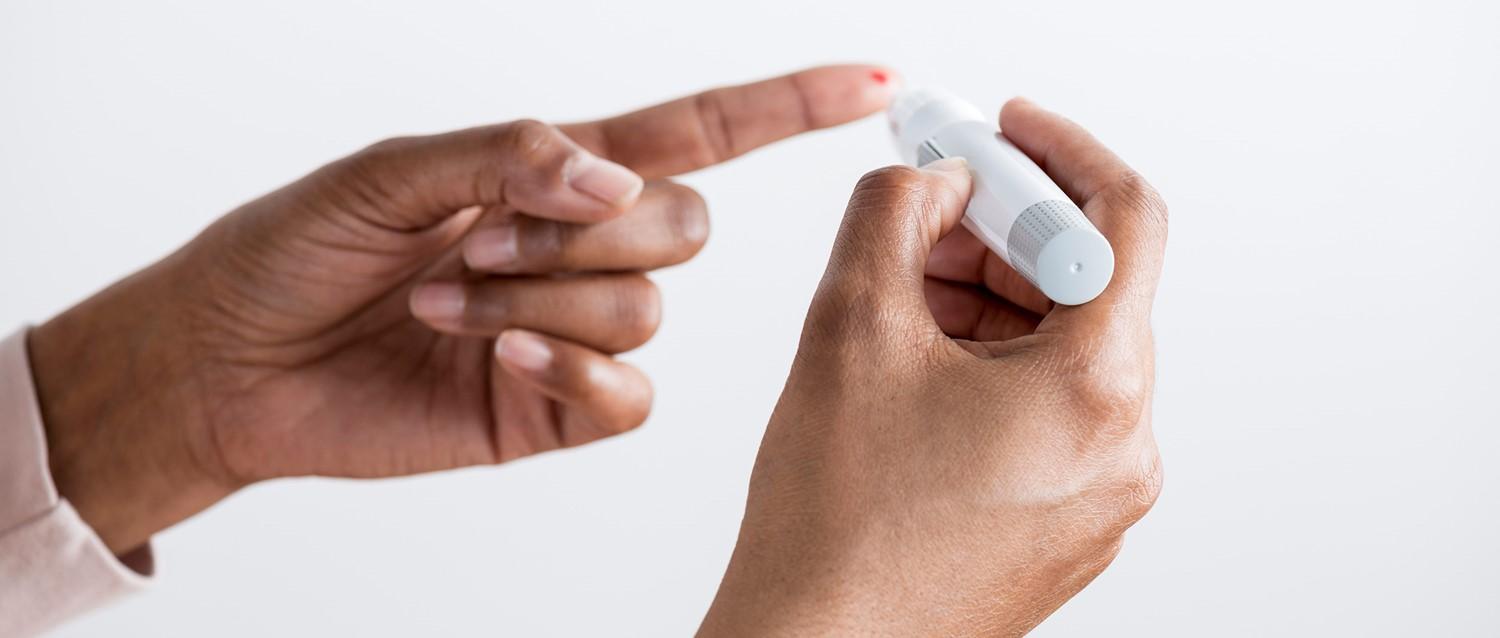
Is having diabetes a disability?
Peer reviewed by Dr Sarah Jarvis MBE, FRCGPAuthored by Danny ChadburnOriginally published 27 Sept 2017
Meets Patient’s editorial guidelines
- DownloadDownload
- Share
- Language
- Discussion
If you have diabetes, and it’s being well managed, the last thing you might expect is to be called disabled. But under the Equality Act of 2010, and the 1995 Disability Discrimination Act in Northern Ireland, it’s classed as an ‘unseen disability’.
Sign up for our free 10-week Diabetes course!
Each week, we'll explore a different topic to help you better understand and manage your diabetes, including everyday living and medicines, to mental wellbeing, the latest in diabetes tech, and nutrition.
By subscribing you accept our Privacy Policy. You can unsubscribe at any time. We never sell your data.
In this article:
But is this a fair and useful description, or an unwanted label? We take a look at both sides of the argument.
Continue reading below
A controversial topic
‘Whenever I see new patients with type 1 diabetes, I let them know their condition is recognised as a disability under the law,’ says Dr Partha Kar, clinical director of diabetes at Portsmouth Hospitals NHS Trust. Discover the legal position on type 1 and type 2 diabetes in the box below.
Dr Kar says, ‘Patients’ responses are divided; half take offense and view their condition as serious but not disabling, while the other half take comfort in the term and want a letter from me to apply for whatever help it might bring.’
‘It’s just not me’
Back to contents‘I wouldn’t consider myself to have a disability,’ says Bob Swindell, 48, who was diagnosed with type 2 diabetes in 2013 and is now a trustee of Diabetes UK. ‘In general, I don’t think having diabetes is disabling and I think the majority of people with the condition would agree with me.’
When diagnosed, Swindell was overweight, inactive and had a family history of type 1 diabetes. After taking metformin for three and a half years, he’s spent the past six months on a medical trial, treating his type 2 with a reduced-carbohydrate diet and increased exercise.
‘As soon as I was diagnosed I started walking more, then did a couch to 5K walk/run programme and, once I’d lost weight and gained some confidence, I started doing parkrun (free, weekly, timed 5K events around the UK).’
Now a parkrun ambassador for diabetes, welcoming others with the condition to the running community, Swindell is something of an athlete. ‘I’ve run half marathons, marathons and have just completed my first ultra marathon,’ he says. ‘I regularly cover 50km a week.’
Having diabetes is no barrier to exercising or athletic achievement – type 2 diabetes didn’t stop Sir Steve Redgrave from rowing his way to Olympic golds, for example.
Continue reading below
Defending your rights
Back to contentsNoele McClelland, an employment law specialist at Thorntons Solicitors in Dundee, understands the desire not to be labelled but points out how you feel about diabetes right now may change if your health gets worse over the years.
‘The Equality Act defines a disability as ‘a physical or mental impairment that has a substantial long-term negative effect on a person’s ability to carry out normal day-to-day activities’,’ she says. ‘Crucially, this considers diabetes as progressive.’
So being classed as disabled protects your rights and might also afford you support and benefits, such as personal independence payments (PIP), if you do need help in future.
Diabetes at work
Back to contentsYour employer cannot discriminate against you for your condition. This means they have to make reasonable adjustments to help you, which could be anything from allowing regular breaks for you to eat, drink or take your medication, to fitting in hospital appointments.
‘It’s also useful for your colleagues to understand your condition, so they can help in an emergency. If your boss knows diabetes sometimes affects your mood, concentration or performance too, they would have to take this into account during a disciplinary, for example,’ says McClellan.
However, it’s up to you to tell your employer about your disability status and there’s no obligation to do so.
Continue reading below
Personal choice
Back to contentsAlthough some people with diabetes, like Swindell, wouldn’t use the term ‘disabled’ to describe themselves, it can be useful to get the care and support you need, such as ensuring parents can claim Disability Living Allowance for their children with diabetes.
‘However patients respond to the term disabled, I reassure them it’s a legal description, not a medical one, and is there to be ignored or embraced as they want,’ says Dr Kar.
‘Some people may have further questions and a genuine need for disability benefits. They may feel it helps them to cope better with diabetes. Others may prefer to reject the status and never to disclose their condition. Most, eventually, feel reassured that their rights are protected and help may be out there in future should they need it.’
So, a bit like a ‘baby on board’ badge for public transport, it’s not a label you have to wear – but there may be times when you’re grateful for what it can do.
What does the law say?
Type 1 diabetes is defined as a disability under the Equality Act, as it can have a ‘substantial, long-term, negative impact on a person’s ability to carry out normal, day-to-day activities’. This definition of disability can also apply to many people with type 2 diabetes– you may be prone to hypos, for example, that can have a severe impact on your ability to carry out daily life.
People with either type 1 or type 2 are also at risk of complications, such as eye or kidney damage, that can lead to long-term physical disabilities. However, whether type 2 can actually be classed as a disability is currently a hot legal topic.
In 2014, the Employment Appeal Tribunal ruled that having type 2 diabetes, which can be controlled by a managed diet, does not in itself amount to a disability. But there are outstanding appeals against that ruling due to the progressive nature of the condition that may have a substantial negative impact in the future. If a person may become disabled in the future, could they therefore be considered to have a disability before things reach that stage?
For everyone dealing with diabetes, from employers to carers, the debate will continue to rage.
Patient picks for Diabetes mellitus

Diabetes
Why caring for your feet is so important if you have diabetes
It can be hard to understand that a condition which affects how your body processes sugar could be dangerous for your feet. However, foot problems resulting from diabetes can have life-changing outcomes.
by Lawrence Higgins

Diabetes
The future of diabetes treatment
How might the landscape of diabetes have changed by 2050? We asked leading diabetes physician Dr David Cavan, author of Reverse Your Diabetes and Reverse Your Diabetes Diet, for his predictions.
by Danny Chadburn
Article history
The information on this page is peer reviewed by qualified clinicians.
27 Sept 2017 | Originally published
Authored by:
Danny Chadburn
Peer reviewed by
Dr Sarah Jarvis MBE, FRCGP

Ask, share, connect.
Browse discussions, ask questions, and share experiences across hundreds of health topics.

Feeling unwell?
Assess your symptoms online for free
Sign up to the Patient newsletter
Your weekly dose of clear, trustworthy health advice - written to help you feel informed, confident and in control.
By subscribing you accept our Privacy Policy. You can unsubscribe at any time. We never sell your data.